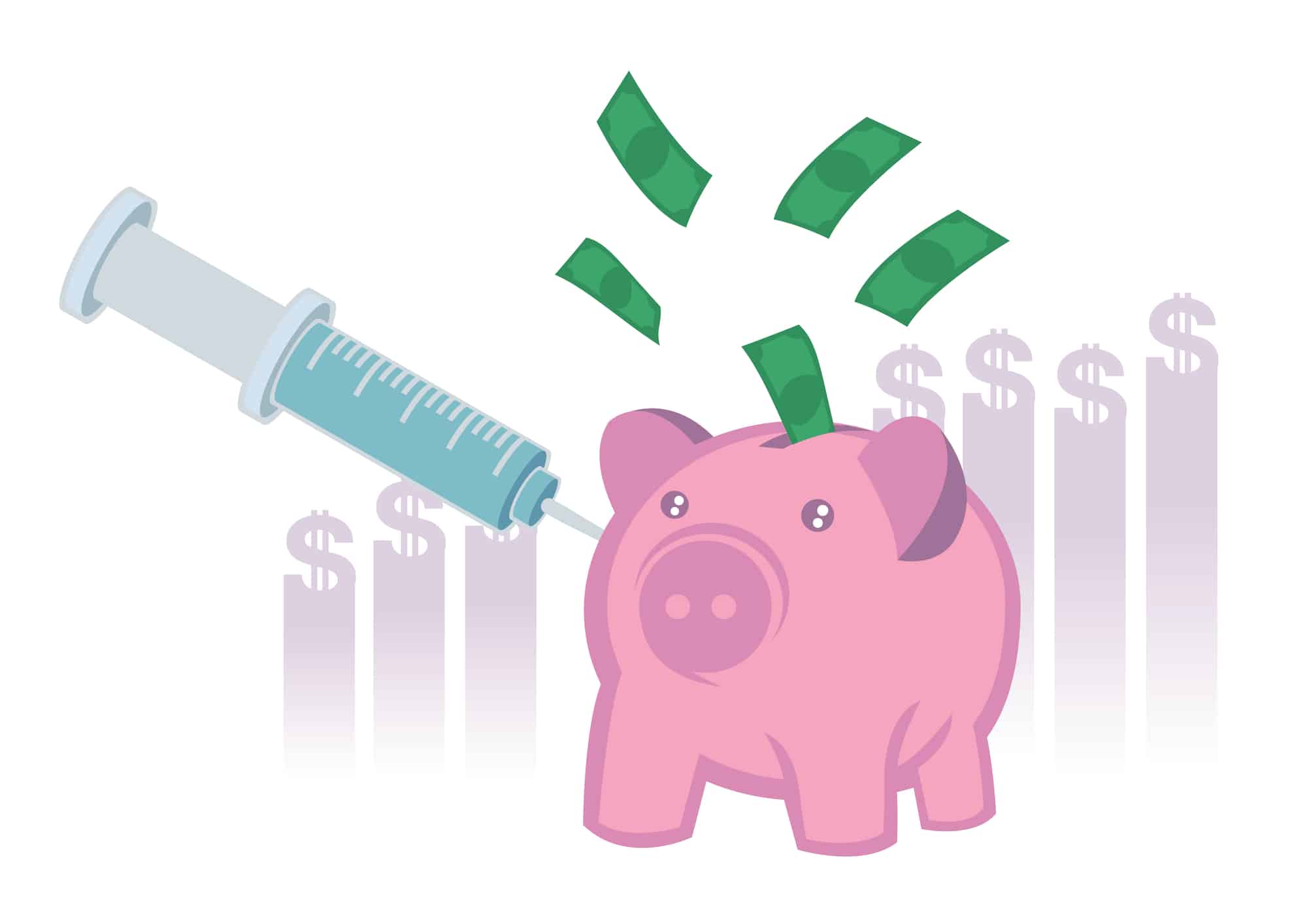The newly born Reform Party UK, with its freshmen five members of Parliament, recently attempted to introduce a bill that would prohibit quantitative easing (QE) except for emergency situations. This was done through a procedure the British parliamentary system calls a Ten-Minute Rule bill. Essentially, a member of parliament (MP) seeks permission to introduce a bill by making the case for it for only ten minutes and then another MP speaks against it for ten minutes. Rupert Lowe, the Reform MP who introduced the bill, was made the center of attention by making a parliamentary misstep at the end when he referenced his colleagues by name instead of the traditional address members must use.
Readers should think carefully about the fact that there was more attention brought to the fact Lowe made a parliamentary procedural error than the contents of his bill. Its arguments should be seriously analyzed, since much of the degradation of today’s market can be traced to the manipulation of our monetary system by the state.
Quantitative easing refers to a process by which the Bank of England creates new money electronically and uses it to buy financial assets—typically government bonds or other securities—from commercial banks and financial institutions. This process pumps huge quantities of newly created money into the private sector; more specifically, into the hands of the largest financial institutions within the private sector that hold assets like government bonds. Since the Bank of England’s independence in 1997, the M2 money stock has grown a massive 326%. Without understanding the role money plays in society, it is impossible to understand just how destructive this is.
The presence of money in society banishes barter to the realm of history. Money allows for individuals in society to trade for a good or service without having exactly what the seller wants. For example, in a society without money, if you’re an egg farmer and want your fences repaired but the fence repairman doesn’t want eggs, you are at an impasse. You cannot make this mutually beneficial trade that creates value for both individuals. The potential for value creation in this society is incredibly constrained, whilst money offers a process through which this mutually beneficial trade can swiftly proceed through a medium of exchange. Money does not just advance society by being a medium of exchange but it also provides to society a standard unit through which business owners, individuals, or groups can engage in accounting.
In a free market, you create the most value by providing a good or service that another individual or group desires. If you make a lot of money it is because you provided a good or service to lots of people, thus creating value for them through their subjective preferences. Money creating a standard unit for accounting allows for expenses and revenues to be properly calculated, hence, if revenues are higher than expenses, it shows you made a profit. Therefore, you created value for people in society. Money’s existence has allowed humanity to advance as far as it has. It has shown savvy entrepreneurs that we would like our lives to be made easier through the advent of computing, and made much more comfortable through the flourishing of medicine. If we still lived in a barter system, it is likely billions of people would have never been born to experience the great bounties life has to offer.
Typically, precious metals like gold and silver were the materials society decided, through a market process, should be our money as they represented the best mediums of exchange. However, the British government forced society off the gold standard in 1931 after butchering it for over a decade and finally convincing enough of the population that it was too volatile and not viable for the modern British state. This was an utter disaster for the advancement of the United Kingdom. Paper money acts as a workable alternative, albeit immensely inferior. So we have advanced (and no one should doubt that), but it opened money up to being manipulated for political purposes. Anti-market forces gained the power to use money for their own self-interested desires. One way of achieving those desires is quantitative easing.
Quantitative easing artificially supresses interest rates so they decrease to levels where individuals and businesses perceive they can afford to borrow money. However, interest rates also play a key role in the allocation of resources. A bank charges borrowers slightly more interest than they do depositors, thus making a profit. Individuals who have no desire to start a business venture would be incentivized to deposit their money in the bank with the promise of earning a good rate of interest; otherwise their money will sit around doing nothing. This increases the amount of real wealth savings available to those in society who have entrepreneurial spirit. These entrepreneurs use the borrowed, real wealth for a business venture that provides value to society through goods or services that are subjectively valued by society. By doing this, they make a profit whilst paying back the loan with interest, thus growing the economic pie for everyone as the amount of real wealth available steadily grows. In this way, interest rates signal how much real wealth there is in society available for borrowers.
QE manipulates the interest rates by pushing them downwards artificially without the necessary change in real wealth savings incentivizing borrowers to start lines of production that they would not normally find profitable. This can boost growth in the very short term as numerous, previously unprofitable lines of production begin. When the central bank notices inflation ticking upwards and the economy starts to “run hot,” they back off with QE, which allows interest rates to go upwards. These lines of production are now unprofitable and collapse, causing a huge bust or recession. The intention of the bust is to rearrange resources back to where society values them through real market interest rates. Unfortunately, QE is usually resumed by central banks to recover from the bust. This sets in motion a cycle of booms and busts in which QE plays a big role.
The only sound method for dealing with the huge misallocation of resources caused in part by QE is to let the recession happen. Let all the resources become available to the market again at their true market value whilst letting interest rates return to where the market rate is. Injecting more QE into the system to boost the economy’s recovery from the bust just keeps misallocating these resources and we will be forever stuck in this doom loop. The Bank of England’s reported role is to provide stability; yet, like the Federal Reserve in the United States, busts have occurred under their watch which they take very little criticism. In comparison, praise is heaped upon them when they inject QE into the system to stimulate an economic recovery, thereby setting in motion a path to another bust.
That Reform have chosen this as one of their primary areas to attack with their very limited parliamentary influence is incredibly encouraging. Quantitative easing does not merely lead to the boom-and-bust cycle and cause severe economic hardship for millions of people, it offers politicians a skeleton key to unlock the greatest excesses government can offer. Endless wars, fanciful boondoggles, and political bribery are all enabled on a scale that would be impossible if we had a money like gold or silver. That Reform are willing to take on this economic orthodoxy should provide so much hope for those who go year after year seeing their money not go as far as it did before. British society would be given a boost like no other if Reform banned QE and even pushed further to return to the United Kingdom to a sound monetary system.































